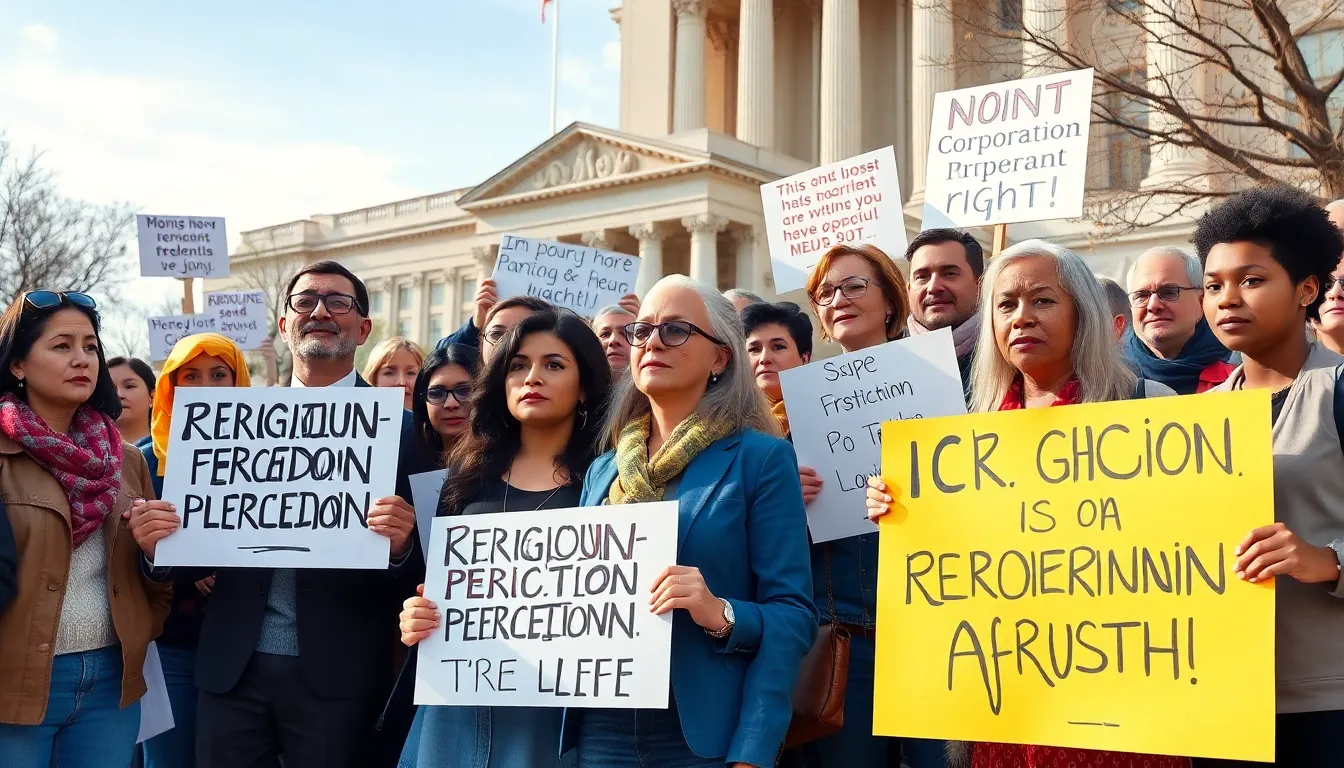Hobby Lobby isn’t just a craft store; it’s a treasure trove of glitter, glue, and—surprisingly—political controversy. As shoppers stroll through aisles of vibrant yarn and seasonal decor, they might not realize they’re also stepping into a battleground of beliefs. Founded by David Green, this retail giant has made headlines for its outspoken views on social and political issues, from healthcare mandates to religious freedoms.
Table of Contents
ToggleOverview of Hobby Lobby
Hobby Lobby operates more than 900 stores across the United States and specializes in arts and crafts supplies. Founded by David Green in 1972, it began as a small picture frame business and grew into a national retail chain. The company not only emphasizes creativity through its product offerings, but also integrates its Christian values into its business practices.
A notable aspect of Hobby Lobby’s operations involves its strong political views, especially concerning issues like religious freedom and healthcare. In 2014, the U.S. Supreme Court ruled in favor of Hobby Lobby in Burwell v. Hobby Lobby Stores, Inc., allowing the company to refuse providing certain contraceptives under the Affordable Care Act based on religious beliefs. This case drew significant attention and sparked discussions on the intersection of corporate rights and individual freedoms.
Hobby Lobby also actively engages in philanthropic efforts, focusing on faith-based initiatives, cultural projects, and educational programs. The company promotes pro-life messages and supports organizations that align with its values. This commitment often influences its political stances, particularly regarding legislation that impacts social issues such as family planning and reproductive rights.
Currently, Hobby Lobby’s leadership continues to advocate for policies that reflect their religious beliefs. This dedication shapes both their business practices and contributions to community causes. Over the years, the company’s approach has positioned it as a significant player in the religious and political landscape, illustrating how retail and belief systems can intertwine.
Hobby Lobby’s Political Engagement

Hobby Lobby engages actively in political matters, merging its business practices with its religious beliefs. This engagement spans various initiatives and court cases significant to the company’s identity.
Involvement in Supreme Court Cases
Hobby Lobby gained national attention with the 2014 Supreme Court case Burwell v. Hobby Lobby Stores, Inc. The court ruled in favor of the company, allowing it to refuse certain contraceptive coverage mandated by the Affordable Care Act based on its religious convictions. This decision set a precedent for corporate rights in relation to religious beliefs, emphasizing the complex relationship between commerce and faith. The ruling sparked widespread debate about the balance between religious liberty and women’s healthcare rights, placing Hobby Lobby at the forefront of discussions regarding corporate responsibility and ethical obligations.
Lobbying Efforts and Organizations
Hobby Lobby participates in lobbying efforts aligned with its Christian values and beliefs. The company collaborates with various advocacy organizations to influence legislation on issues like abortion and religious freedom. Engaging with groups such as the Alliance Defending Freedom, it supports initiatives that protect the rights of businesses to operate according to their faith-based principles. Financial contributions to these organizations enhance its political influence. The leadership’s close alignment with socially conservative causes further solidifies its commitment to uphold principles that reflect its foundational beliefs.
Key Political Issues Supported by Hobby Lobby
Hobby Lobby focuses on several key political issues, emphasizing its commitment to its core values.
Religious Freedom
Hobby Lobby champions religious freedom as a fundamental American right. The company gained national attention through the 2014 Supreme Court case Burwell v. Hobby Lobby Stores, Inc. This landmark decision allowed the company to opt out of providing certain contraceptives based on religious beliefs. Such actions underscore the company’s stance that businesses shouldn’t have to sacrifice their religious principles. Advocacy for the right to operate according to faith illustrates a broader push for religious liberties in corporate environments.
Business and Economic Policies
Hobby Lobby supports conservative business policies that prioritize free enterprise and limited government intervention. Taxation policies favoring small businesses resonate with the company’s interests. They argue that lower taxes and fewer regulations foster an environment where businesses can thrive. Additionally, Hobby Lobby promotes pro-family policies, believing they strengthen communities. It advocates for legislative measures that bolster family values, aligning with its mission to integrate faith into business practices.
Criticism and Controversies
Hobby Lobby faces considerable criticism and controversies due to its political views and business practices. The company’s actions often spark intense public dialogue.
Public Reactions
Protests frequently occur at Hobby Lobby stores, reflecting strong opposition to its stances. Advocates for women’s rights criticize the company for its refusal to cover certain contraceptives, viewing it as an infringement on healthcare access. Supporters of Hobby Lobby argue that the company embodies religious freedom, presenting it as a champion of faith-based values. Online platforms amplify discussions, leading to polarized opinions on social media. Customers often engage in campaigns that either encourage support or boycott based on the company’s policies, illustrating the fervent public response.
Impact on Brand Image
Hobby Lobby’s political involvement reshapes its brand image among consumers. Some individuals appreciate the company’s commitment to religious values, viewing it as a principled business. Competitive brands occasionally capitalize on Hobby Lobby’s controversies, promoting more progressive values to attract customers. Conversely, ongoing controversies may alienate segments of the customer base, affecting sales. Brand loyalty can strengthen among those who share its values while diminishing among critics. Over time, Hobby Lobby’s reputation evolves, consistently influenced by its political actions and public reception.
Hobby Lobby’s political views significantly impact its brand identity and consumer relationships. By intertwining business practices with religious beliefs, it stands at the forefront of debates surrounding corporate rights and individual freedoms. The company’s commitment to conservative values resonates with many but also invites substantial criticism, particularly regarding women’s healthcare rights.
As Hobby Lobby navigates these controversies, its reputation continues to evolve, reflecting the complex dynamics of faith in commerce. The ongoing dialogue surrounding its political stance ensures that Hobby Lobby remains a focal point in discussions about the intersection of business, belief, and social responsibility. Ultimately, its influence extends beyond retail, shaping conversations about the role of faith in public life.





